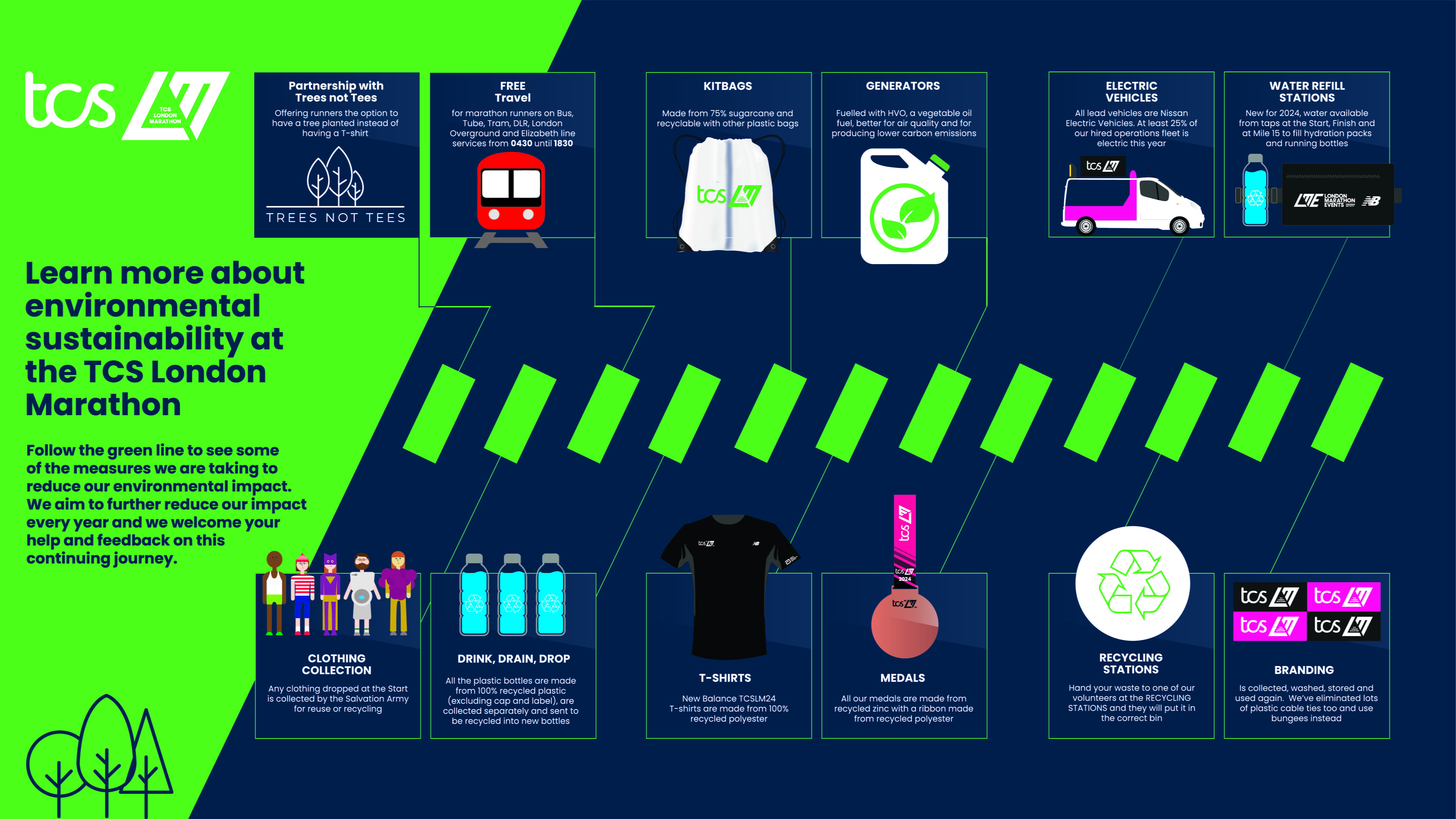Managing our environmental impact at the 2024 TCS London Marathon
Find out what steps we are taking to manage the environmental impacts of this incredible event and how you can help – whether you’re taking part or watching.

The items marked with an asterisk are new for 2024.
Pre-event:
- All international ballot participants have paid a carbon levy to help compensate greenhouse gas emissions associated with overseas travel. This is then spent on carbon removal credits.
- Our entry system offered everyone the chance to opt out of a T-shirt and plant a tree through our partnership with Trees Not Tees.
- We also offered the chance to opt out of a medal.
At the TCS London Marathon Running Show:
- Bib numbers printed on-demand to reduce waste.
- No single-use carpet this year in large areas of the Running Show and all carpet used is made from recycled material and is then sent to be recycled.*
- Please donate your unwanted trainers through our partnership with JogOn.*
- Come and find out more about what we’re doing and how you can play a part at our Sustainability Stand – and refill your water bottle at our water refill point.
On the day:
- The finisher medals are made from recycled zinc.*
- Kit bags are made from sugarcane, which is a type of bioplastic that is recyclable.
- New Balance event T-shirts are made from 100% recycled polyester.
- There will be water refill stations at each start area and on the course (at Mile 15) providing tap water from bowsers suitable for runners who are carrying their own container (hydration vest or hand-held running bottle)*
- Buxton Natural Mineral Water bottles are made of 100% recycled plastic (excluding cap and label) and are collected separately, returned to Buxton and recycled into new bottles. These are 250ml bottles, specially produced for London Marathon Events by Buxton and are designed to help save water and plastic.
- Lucozade bottles are also made from 100% recycled plastic (excluding cap and label) and are collected separately, then sent for recycling.
- HVO (vegetable oil) fuel is used in generators .
- Nissan electric vehicles are used on course as lead vehicles.
- Nissan Leaf electric vehicle used to power the stage at Rainbow Row (Just past Mile 21).
- Volunteer-run recycling stations are provided to improve recycling rates.
- Clothing dropped at the start areas is collected by the Salvation Army to be sold in its shops or recycled.*
- Leftover food and drink products are donated to The Felix Project, a London-based food waste and redistribution charity that rescues surplus food and delivers it to almost 1,000 frontline charities, primary schools and holiday programmes to help feed local communities.


